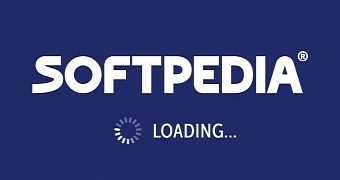With the Internet Slowdown around the corner, Softpedia has decided to join in the cause, urging visitors to support net neutrality.
Softpedia joins a long list of companies that will be adding an ever-loading wheel on their sites on Wednesday, September 10. Reddit, Mozilla, WordPress, Netflix, Vimeo, Etsy, Digg, Foursquare, and Kickstarter are just a few of those who will be using this tactic to bring awareness to the risks that come with a lack of net neutrality.
Tomorrow, Softpedia will be sporting its very own loading button, showing you a glimpse of what could happen if net neutrality becomes a thing of the past.
What is Net neutrality and why does it need protecting?
As you may already know, net neutrality is the concept that dictates that absolutely all online traffic must be treated the same. Without it, Internet service providers can impose their own views to their customers and force them to only access sites and services they agree with.
The Federal Communications Commission was told earlier this year that it has no legal power to force ISPs to comply with net neutrality, which pushed Tom Wheeler, the FCC’s chairman, to come up with a proposal that only makes things worse.
What could happen?
The new policy would allow ISPs to create so-called fast lanes, charging data hogs such as Netflix and YouTube for proper Internet speeds. This, in itself, is a bad idea because it poses so many risks.
First of all, many companies could be faced with the same situation that Netflix was in up until a few months ago. Starting last year, according to the company’s data, Comcast has slowed down the company’s speeds to the point that users couldn’t even stream the content they wanted to see. Since Netflix was losing customers, it had to bend to the pressure and sign a peering deal with Comcast in order to access this fictional fast lane.
The company faced similar issues with other ISPs, indicating that this is a trend among US telcos.
This maneuver has the potential of seriously damaging innovation in the online medium because smaller companies would have no money to sign such deals with ISPs and they’d automatically draw the short stick, not being able to grow because of speed limitations imposed on their services.
Second of all, there is no such thing as fast lanes, at least not in the way that the ISPs want to do things. Without actual network upgrades, which ISPs have been running away from, there is only one lane and paying companies would get access to it, while the rest would have their speed throttled with to justify the differences between the paying and non-paying sites.
What’s the alternative?
The FCC has received over a million comments in regards to the Net neutrality debate, with under one percent being against the notion. Tech companies across the world have stepped up and said why it was so important to treat all Internet traffic the same.
The easy way for the FCC to solve the issue is to reclassify ISPs under Title II, to make them common carriers, and therefore, to gain control over them.

 14 DAY TRIAL //
14 DAY TRIAL //